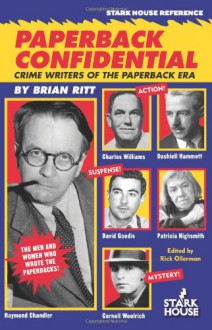...arrived today. I'm very excited. That's my winter reading sorted. I think.



Hercule Poirot frowned.
"Miss Lemon," he said.
"Yes, M. Poirot?"
"There are three mistakes in this letter."
His voice held incredulity. For Miss Lemon, that hideous and efficient woman, never made mistakes. She was never ill, never tired, never upset, never inaccurate. For all practical purposes, that is to say, she was not a woman at all. She was a machine - the perfect secretary. She knew everything, she coped with everything. She ran Hercule Poirot's life for him, so that it, too, functioned like a machine.
Order and method had been Hercule Poirot's watchwords from many years ago. With George, his perfect manservant, and Miss Lemon, his perfect secretary, order and method ruled supreme in his life. Now that crumpets were baked square as well as round, he had nothing about which to complain.
Square crumpets?! Have I missed these so far?
Anyway, to the book... Hickory Dickory Dock was a fun read, in which Miss Lemon gets some page time. The story is set in 1955 in London and Miss Lemon is worried about her sister and the strange goings on at the hostel where her sister works: Things have gone missing.
In order to return to a life of normalcy and perfection, Poirot offers to help Miss Lemon's sister solve the mystery of the disappearing items.
Hickory Dickory Dock is a great story to note the differences in Christie's writing between the pre- and post-war periods. This story is set in the 50s, and the bright young things are now less decadent and more international. The youth comes across in Christie's dialogues reasonably well, but the international aspect made me cringe.
Let's face it, despite her efforts, Christie just was not great at writing characters from non-English backgrounds.
Still, it was fun watching Poirot solve this, even if sometimes you just want to kick Poirot in the shins.
Hercule Poirot nodded understandingly. It seemed to him appropriate that Miss Lemon's sister should have spent most of her life in Singapore. That was what places like Singapore were for. The sisters of women like Miss Lemon married men in business in Singapore, so that the Miss Lemons of this world could devote themselves with machine-like efficiency to their employers' affairs (and of course to the invention of filing systems in their moments of relaxations).

It's not that often that a book about murder makes me smile, but Emsley has bit of a "Battle of the Grand Dames of Mystery" going on here. (I have put the titles in spoiler tags in case the plot description provides spoilers...)
In the red corner, Dame Agatha:
Agatha Christie built one of her murder mysteries around thallium poisoning. In
(spoiler show)1952 she wrote The Pale Horse
, in which the murderer used it to dispose of people’s unwanted relatives and disguised his activities as black magic curses. The plot involves a murdered priest and a pub owned by three modern-day witches.* Christie described the symptoms of thallium poisoning very well: lethargy, tingling, numbness of the hands and feet, blackouts, slurred speech, insomnia, and general debility, and she is sometimes blamed for bringing this poison to the attention of would-be poisoners. However, her book was responsible for saving the life of one young girl as we shall see.
In the blue corner, we have Ngaio Marsh also using Thallium:
In
(spoiler show)Final Curtain, written in 1947
, the novelist Ngaio Marsh had her villain using it. The murder to be investigated was the death of
(spoiler show)Sir Henry Ancred
who had been poisoned with thallium acetate which had been prescribed in the treatment of his granddaughter’s ringworm. Marsh clearly had no knowledge of how thallium worked in that she imagined that those poisoned with it would drop dead in minutes. Would-be murderers seeking to emulate her villain would have been very puzzled when their intended victims appeared to suffer no ill effects, although this disappointment might only have lasted a few days, and then they would have been fascinated at the many symptoms it produced.
I haven't read Marsh, yet, (something I intend to remedy someday) but one of the fun aspects in Dame Agatha's work is that she seldom gets the use of poisons wrong. Her training as a nurse and familiarity with pharmacy had much use, of course, but she also didn't slack on her research in that field.
This is the only instance in Emsley's book that cites crime writing. The rest of the book recounts real events and people.
 Oh, my, word! I think Brian Ritt wrote this book for me. (And Mantan, I'm sure.)
Oh, my, word! I think Brian Ritt wrote this book for me. (And Mantan, I'm sure.)